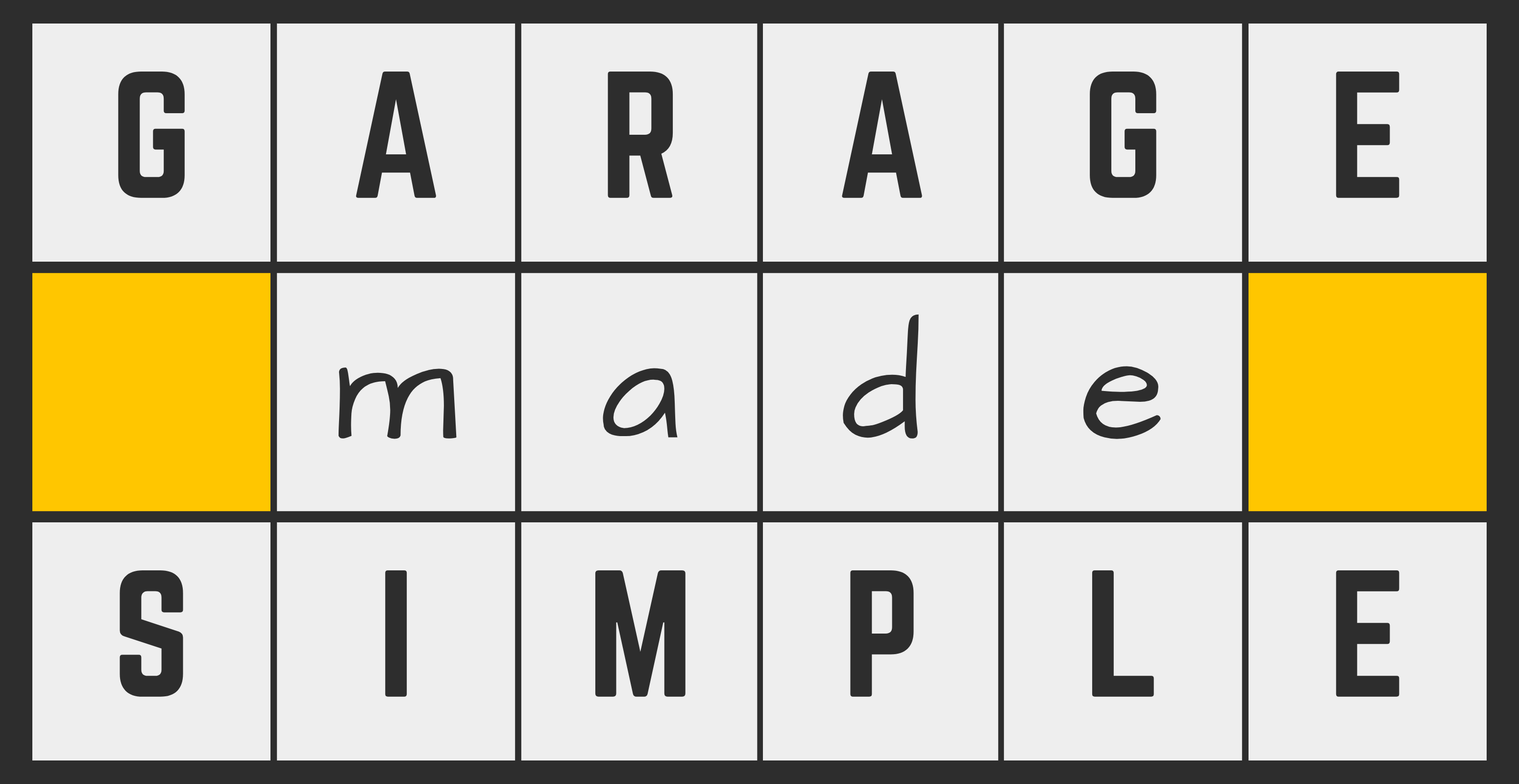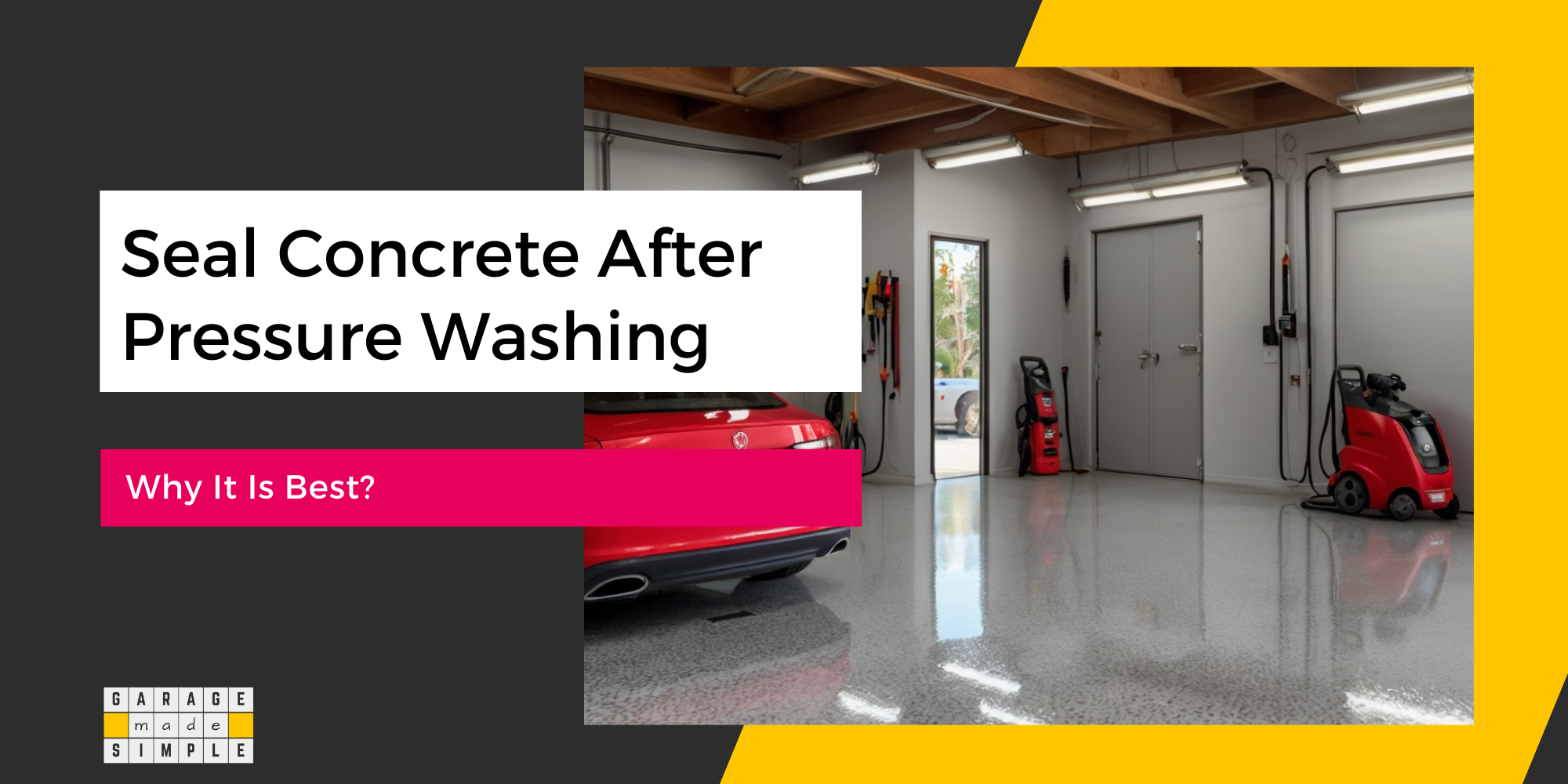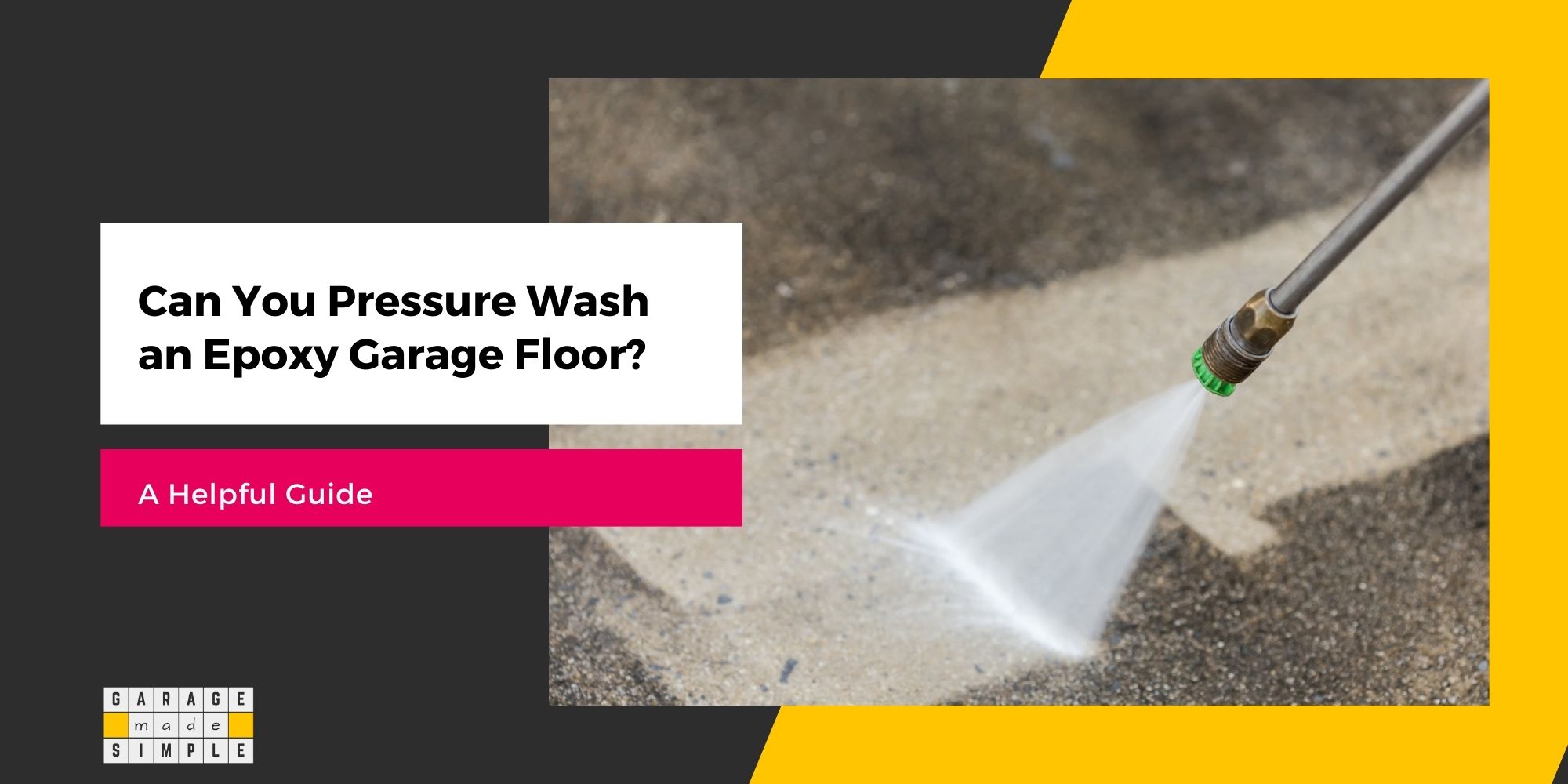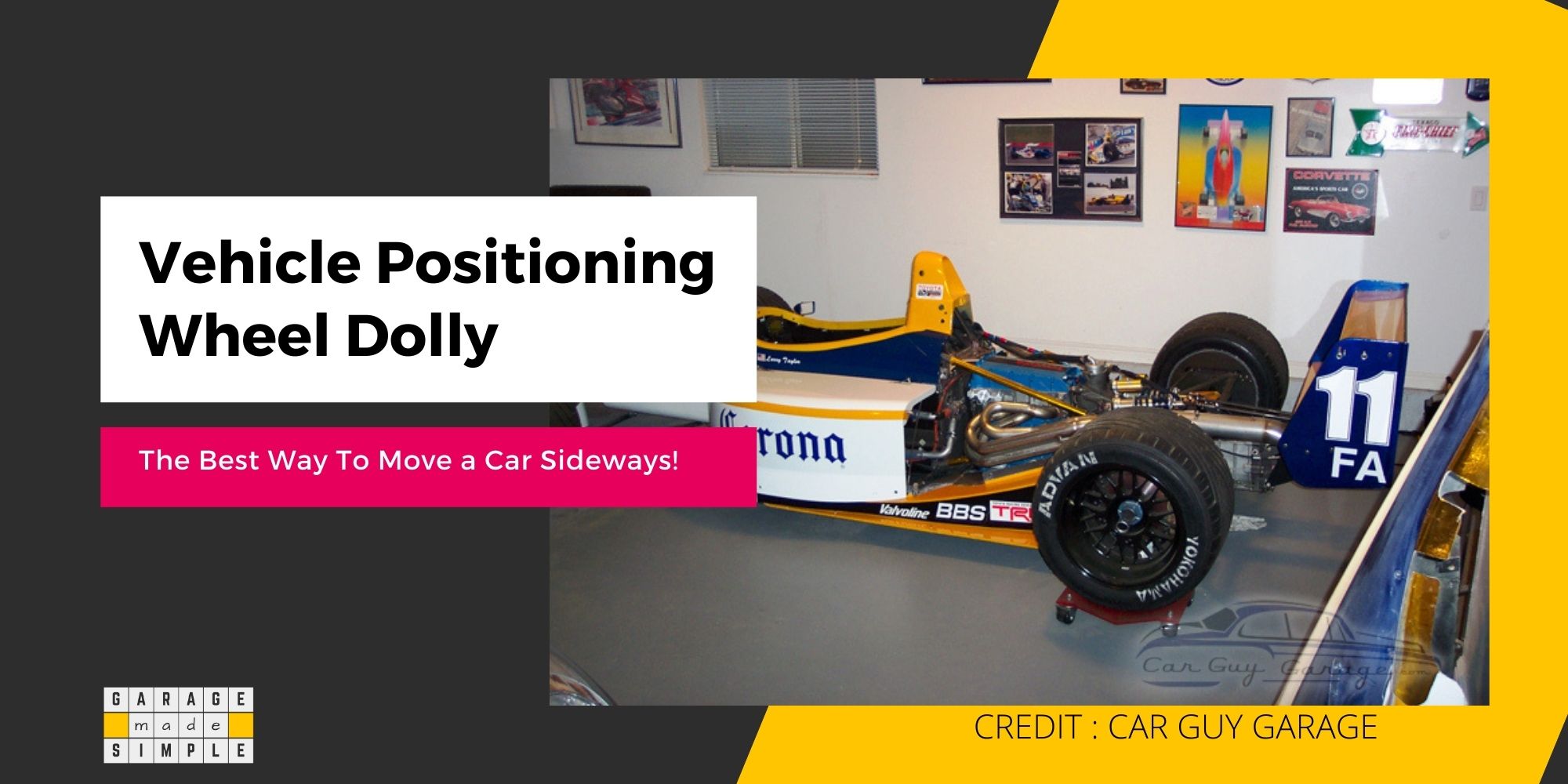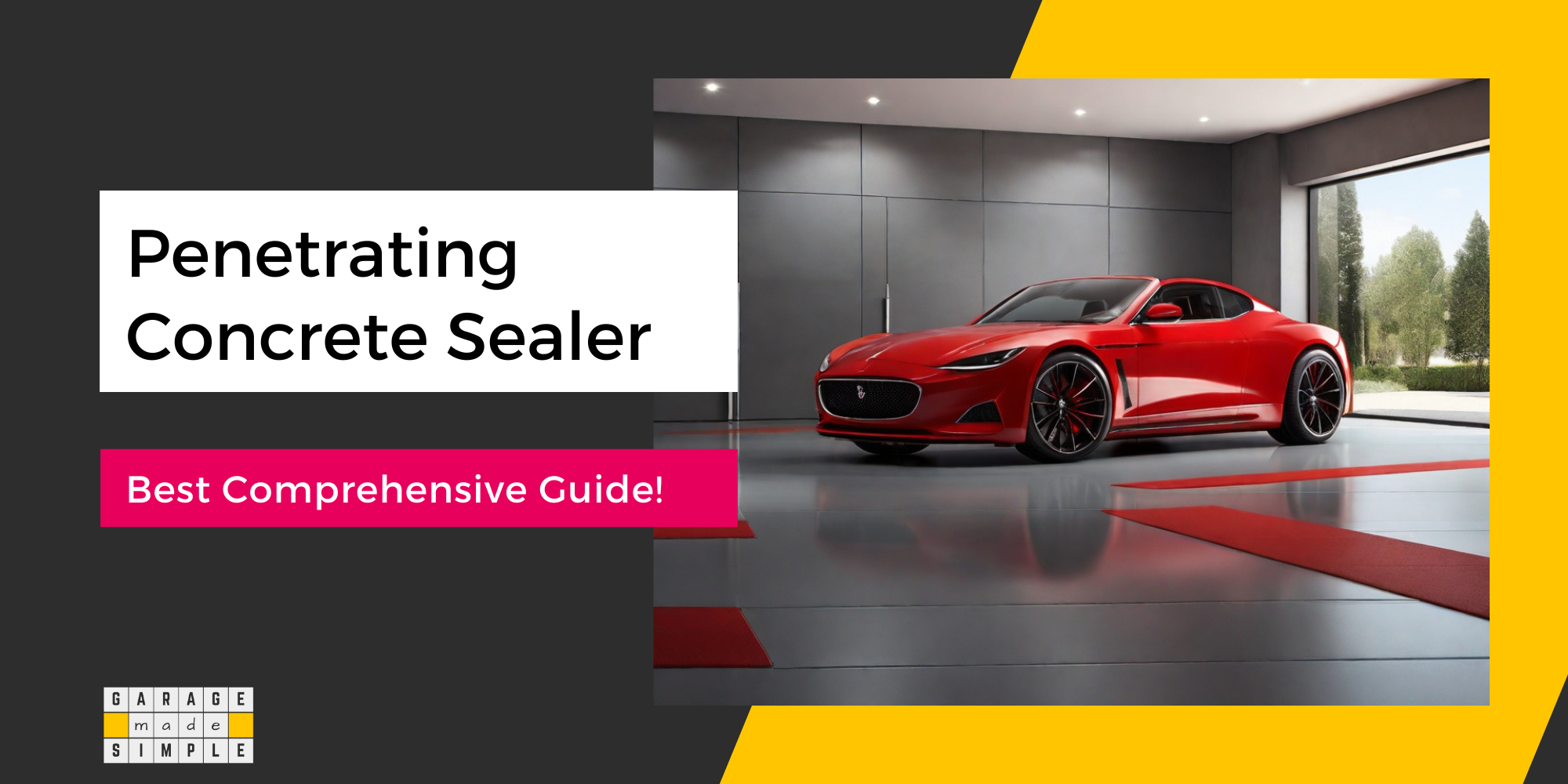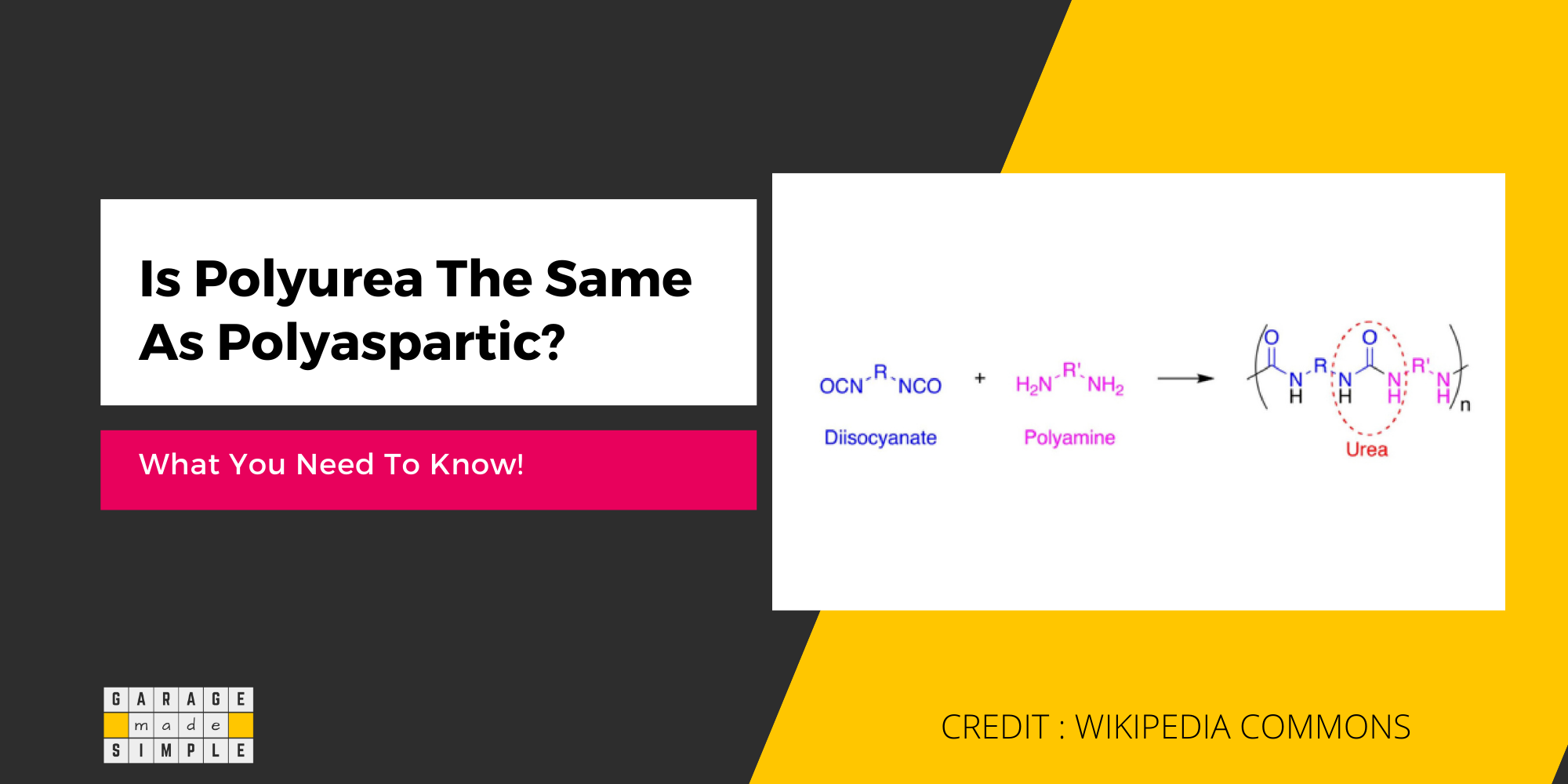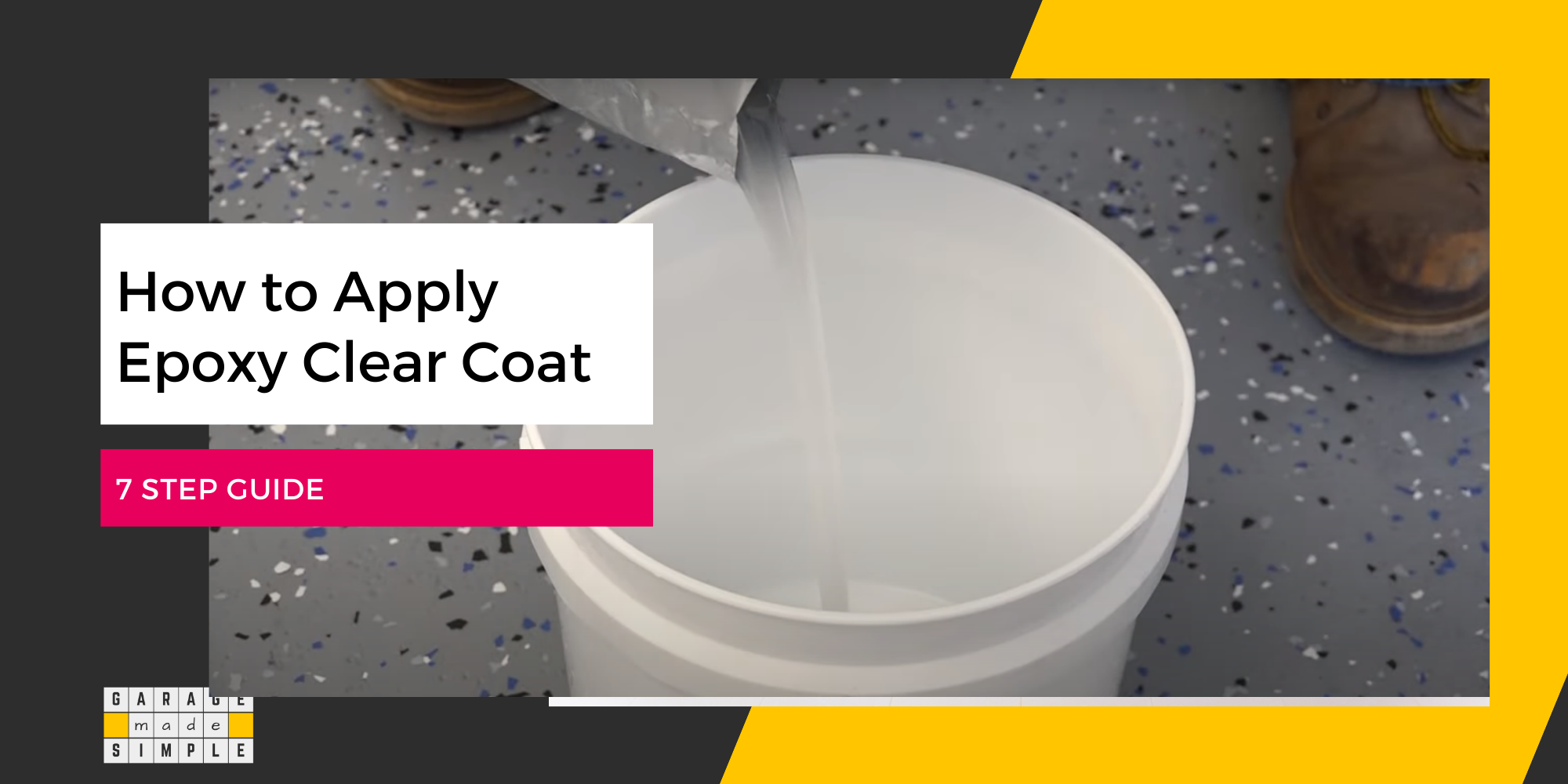Polycuramine vs Epoxy: 7 Reasons RockSolid is Better Than EpoxyShield
As an Amazon Associate, I earn from qualifying purchases.
Is RockSolid Better than EpoxyShield?
Both are products from Rust-oleum. RockSolid is based on Polycuramine resin, while EpoxyShield is based on Epoxy resin. Polycuramine vs Epoxy, what is better, is the same as asking what is better when it comes to RockSolid vs EpoxyShield.
RockSolid is a Polycuramine Coating and combines the best properties of Polyurea, Urethane and Epoxy chemistries. This gives it a huge edge over Epoxy…and Polyurea for that matter.
The 7 specific features where RockSolid Polycuramine Coatings scores over EpoxyShield Epoxy Coatings are:
| Feature | RockSolid Polycuramine Coatings | EpoxyShield Epoxy Coatings |
| 1. Ready for Use | Drive on it in 24 hours | Drive on it in 72 hours |
| 2. Durability & Strength | 20X Standard Garage Floor Paint | 5X Standard Garage Floor Paint |
| 3. Gloss Level | High Gloss Finish | Glossy Finish |
| 4. Chemical Resistance | Higher resistance to Chemicals (including salt, oil & gasoline) | High resistance to Chemicals |
| 5. Volume Solids | Much Higher (96%) | High (Around 63%) |
| 6. Dry Film Thickness (DFT) | Self Leveling and can be built up | 3.0-3.5 mils (75-87.5µ) |
| 7. Volatile Organic Compounds (VOCs) | Low Odor & VOC Free as solids by volume is 96% | Not Low Odor or VOC Free |
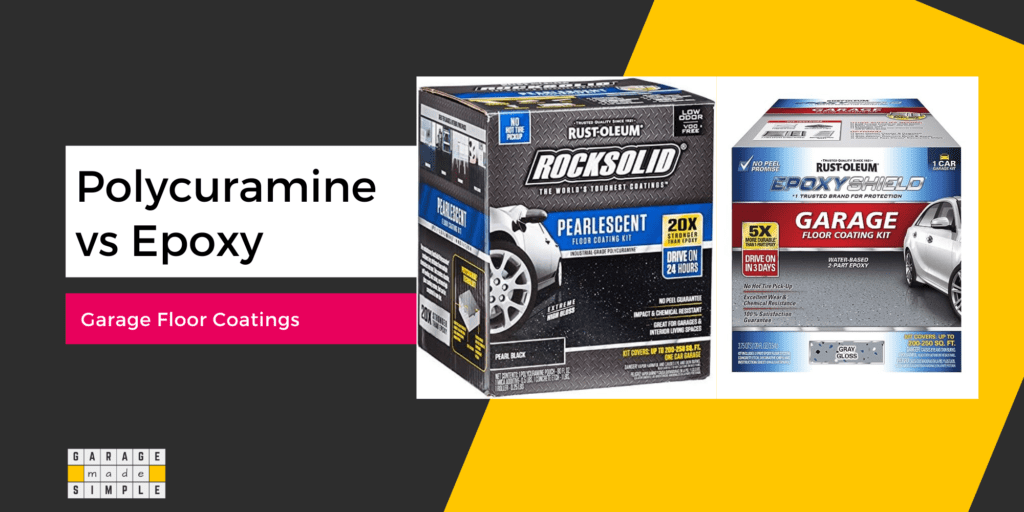
CLICK TO ORDER
Polycuramine vs Epoxy Garage Floor Coatings: The Basics
Polycuramine is a new technology while Epoxy has been around for decades.
Now both polycuramine and epoxy coatings are widely used in concrete floor coatings, but have distinct differences in terms of performance and properties.
Polycuramine
Polycuramine combines aliphatic polyisocyanates with epoxy and amine resins. This unique combination results in a highly durable and flexible coating that exhibits excellent resistance to chemicals, abrasion, and UV degradation.
Polycuramine coatings cure rapidly, allowing for quicker return-to-service times, making it an ideal choice for projects with tight timelines.
Epoxy
Epoxy resin, on the other hand, is well known for strong adhesion and hardness, providing good protection against chemical and mechanical stress.
However, epoxies are prone to UV degradation, leading to yellowing and chalking over time, making them less suitable for outdoor or high-exposure applications.
What Is the Difference between Coating and Paint?
More often than not, “garage floor coating” and “garage floor paint” are terms that are used interchangeably.
Unless you are pretty involved in the paints & coatings industry, you may think that paint and coatings mean the same thing. They do not. Further you may think that all epoxies are the same. Once again they are not.
You may also be overwhelmed by terms like Latex Paint, Acrylic Paint, Epoxy Paint, Epoxy Coating and Polyurethane Coating. To make matters worse you may have started hearing totally new terms like Polyaspartic Coating and Polycuramine Coating.
Not to worry. You are not alone. There are millions of garage owners who are seeking clarity, just like you are.
In this post, I shall explain the difference between paints vs coatings and polycuramine vs epoxy coatings, commonly used on the garage floor.
By the end of this post you will have a fair understanding of each type. This will be of immense value when you are in a store buying the product or talking to a flooring contractor.
What are Paints & Coatings?
At the very basic level, paints & coatings are the same. Generally speaking, all types of paints & coatings have five key ingredients:
- Pigments – These are chemicals that give the color to the paint or coatings film. For example Titanium Dioxide is used for White color.
- Fillers – These add body to the paint film but do not impact on the functional properties too much. For example China clay.
- Additives – These are chemicals that give special properties to the film.
- Binders – These are resins which set once the paint or coating dries. Resins keep the pigments and additives in place.
- Solvents – This is the liquid in which the above three float. After application the solvent is released to the atmosphere and the first three form a solid, seamless film. Solvents are water in water based (such as Latex or Acrylic) and oil in oil based (such as Enamel or Epoxy). Technological developments now allow Epoxies to be offered as a water based product.
The nomenclature used to describe a paint or a coating is based on the name of the predominant binder, aka resin, used to formulate the said paint or coating.
Simply put a latex paint uses latex (aka acrylic resin) as the binder, an alkyd paint uses alkyd resin as the binder, an epoxy coating uses an epoxy resin as the binder and a polyurethane coating uses polyurethane resin as the binder.
But sometimes, a manufacturer may label its product, somewhat incorrectly, to gain a marketing advantage.
Paint vs Coating: What’s the Difference?
So what is the difference between a paint and a coating? Try googling for an answer. Trust me, you will be totally confused. So called “Experts” do not seem to agree. Wikipedia does not clarify. Guess what: The URL of “American Coatings Association” is https://www.paint.org/
OK. So let me suggest a difference.
(I read this on a manufacturer’s website and I think it makes at least some sense in the context of garage flooring).
A paint will develop a dry film thickness (DFT) which is less than 2 mil, in a single coat application. A coating will develop a dry film thickness (DFT) which is 2 mil or more, in a single coat.
As an example consider two products from Rust-oleum
| Feature | RUST-OLEUM CONCRETE & GARAGE FLOOR PAINT + PRIMER | EPOXYSHIELD WATER-BASED EPOXY GARAGE FLOOR COATING |
| Type | 1 Part Epoxy Paint | 2 Part Epoxy Coating |
| Resin Type | Modified Acrylic Polymer | Amine Cured Epoxy |
| Solids %age by weight | (42.6 – 45.6)% | (62.6 – 63.3)% |
| Dry Film Thickness (DFT) | 1.0-1.5 mils (25-37.5µ) | 3.0-3.5 mils (75-87.5µ) |
| Source URL | Source URL | Source URL |
Types of Paints for Garage Floors
Paints for Garage Floors are at the lowest end of the spectrum in this range. Even within “Paints for Garage Floors” category you may have:
Latex or Acrylic Garage Floor Paints:
These are pretty much like any other Latex or Acrylic Paint that you might apply on a wall. May be just a little bit more hard wearing.
1 Part Epoxy Garage Floor Paints:
These are Modified Acrylic Paints. The Acrylic resin is modified (that is blended) with Epoxy to improve the hardness & toughness of the paint, so that it can withstand vehicular & foot traffic better.
These are generally labelled as “1 Part Epoxy CONCRETE & GARAGE FLOOR PAINT”
Let us just look at 3 popular Garage Floor Paints
| Feature | RUST-OLEUM CONCRETE & GARAGE FLOOR PAINT + PRIMER | KILZ CONCRETE & GARAGE FLOOR PAINT | DRYLOK LATEX 1 PART EPOXY CONCRETE FLOOR PAINT |
| Type | 1 Part Epoxy Paint | 1 Part Epoxy Paint | 1 Part Epoxy Paint |
| Resin Type | Modified Acrylic Polymer | Epoxy/Acrylic | Epoxy ester/ acrylic blend |
| Solids %age by weight | (42.6 – 45.6)% | 41% | (42.8 – 43.5)% |
| Dry Film Thickness (DFT) | 1.0-1.5 mils | 1.0-1.6 mils | Not Stated |
| Source URL | Source URL | Source URL | Source URL |
1 Part Epoxy Paint does have a small quantity of Epoxy resin and it does improve the durability of the paint. However, the improvement is marginal.
1 Part Epoxy dries like any other Latex / Acrylic Paint. The process is physical, not chemical. The key features of 1 Part Epoxy Garage Floor Paint is that they are low solids & low DFT. They are easy to apply and dry pretty fast but have performance limitations.
They are better than the usual Latex / Acrylic Paints but no match to Epoxy Coatings.
Types of Coatings for Garage Floors
Paints for garage floors are alright for cosmetic purposes. They will give your garage a new look. However, this look will not last for long. The low dry film thickness (DFT) and use of resin that is not hard wearing results in very low durability.
To get durability and performance, you must use garage floor coatings. Your options are:
2 Part Epoxy Garage Floor Coating:
When it comes to Epoxies, this is the real deal.
2 part Epoxy Coatings consists of 1 part of Epoxy resin and 1 part of polyamine hardener. A chemical reaction is set off when these two are mixed.
This is the start of the curing process. Over a period of time, the Epoxy Coating cures completely, resulting in the tough hard film that you want on your garage floor.
Not only is a 2 part epoxy coating pretty abrasion resistant, it is fairly easy to maintain and keep looking as good as new!
Even though epoxy coatings are great value for money. when it comes to polycuramine vs epoxy, epoxy is not a match on performance.
2 Part Polyurethane Garage Floor Coating:
Polyurethane is another type of resin and is in some ways similar to Epoxy resin. Both are thermosetting. From the point of use as garage floor coating consider the comparison table below:
| Feature | EPOXY | POLYURETHANE |
| Bonding to Concrete | Excellent | Good |
| Surface Hardness | Excellent | Good |
| Flexibility | Not so Good | Very Good |
| Chemical Resistance | Very Good | Even Better |
| UV Resistance | Poor / Not recommended for exterior use | Excellent |
| Ease of Application | Moderate | Difficult |
Based on the above, I would say that an Epoxy Coating meets the requirements of a garage flooring better than a Polyurethane Coating.
However, a Polyurethane Clear Top Coat could be applied on the Epoxy Coat if flexibility and UV resistance are required. You can also incorporate a non-skid additive in the clear top coat to make the garage floor slip resistant.
Polyurea Garage Floor Coating:
This is a relatively new product category. The polyurethane resin is cured using the moisture in the air, essentially making it a 1 part product. Some of the products getting good reviews are:
- Nohr-S® Polyurea Coating from Legacy Industries
- SPGX ONE PART POLYUREA COATING from ARMORPOXY
- Polyurea Garage Floor Coating from Garage Flooring LLC
They claim easier application, better performance and lower costs than 2 part Epoxy Coatings.
Polyaspartic Garage Floor Coating:
Actually Polyaspartic is also a type of Polyurea. It is an aliphatic urea as opposed to an aromatic urea. The term polyurea is generally used only with an aromatic urea.
Of course, because of a somewhat different chemistry, Polyaspartic Coatings and Polyurea Coatings exhibit somewhat different properties.
Several manufacturers and applicators claim that Polyaspartic Coatings are superior to Polyurea Coatings.
Polycuramine Garage Floor Coating:
Now, Polycuramine Coatings take the garage coating game to a whole new level, by combining the best of Polyurea, Urethane and Epoxy chemistries. The result is ONE indestructible, self-leveling, flexible, fast curing, high gloss coating system.
The ROCKSOLID Polycuramine® Garage Floor Coating, from RUST-OLEUM claims that it is “20 times stronger than epoxy”. Do note that they imply 1 part Epoxy Paint by epoxy.
As such ROCKSOLID Polycuramine® Garage Floor Coating is 4 times stronger than EPOXYSHIELD Water-Based Epoxy Garage Floor Coating which is a 2 part Epoxy Coating.
ROCKSOLID Polycuramine® Garage Floor Coating can also be recoated, either with a clear top coat or just some other color if you feel like a change.
Typically any paint or coating application on a concrete garage floor requires a primer coat for best results. However, as Rocksolid Polycuramine Coating is 100% solids self-leveling coating a primer coat is not necessary.
So, when it comes to polycuramine vs epoxy, the performance of polycuramine is far superior.
Polycuramine vs Epoxy Floor Coating vs Epoxy Floor Paint
A comparison of the three products of RUST-OLEUM will put all this in perspective.
| Company | RUST-OLEUM | RUST-OLEUM | RUST-OLEUM |
| Product Name | RUST-OLEUM CONCRETE & GARAGE FLOOR PAINT + PRIMER | EPOXYSHIELD WATER-BASED EPOXY GARAGE FLOOR COATING | ROCKSOLID® GARAGE FLOOR COATING |
| Type | 1 Part Epoxy Paint | 2 Part Epoxy Coating | Polycuramine |
| Resin Type | Modified Acrylic Polymer | Amine Cured Epoxy | Proprietary Blend of Epoxy, Urethane and Polyurea |
| Solids %age by weight | (42.6 – 45.6)% | (62.6 – 63.3)% | 96% |
| Dry Film Thickness (DFT) | 1.0-1.5 mils (25-37.5µ) | 3.0-3.5 mils (75-87.5µ) | |
| Drive Time | 5 days | 3 days | 1 day |
| Durability / Strength | 1X | 5X | 20X |
| Finish | Satin | Gloss | High Gloss |
| Coverage per Kit (Pack) | 300-400 sqft / gal | 500 sqft / 2 gal Kit | 250 sqft / kit |
| RUST-OLEUM Data Link | Garage Floor Paint | EpoxyShield | RockSolid |
| Price per Kit / Pack (On Amazon) * Prices may vary | $ 47.13 | $ 158.27 | $122.31 |
| Amazon Link | Garage Floor Paint | EpoxyShield | RockSolid |
| Cost per 100 sqft | $ 11.79-15.72 | $ 31.65 | S 48.92 |
As you can see in the polycuramine vs epoxy war, polycuramine reigns supreme!
Rust-Oleum RockSolid Garage Floor Coating Kit
Rust-Oleum Rocksolid Polycuramine Garage Floor Coating
Rust-Oleum RockSolid Garage Floor Coating Kit is made from a unique polycuramine formula that provides a tough, ultra hard coating on properly prepared interior concrete floors including garages.
Resistant to salt, oil, gas and other harsh chemicals, this coating bonds to concrete to give a high-gloss finish. Ready to walk on in 8-10 hours and drive on in 24 hours.
RockSolid vs EpoxyShield: What is the Right Application Temperature?
RockSolid can be applied on a garage floor when the temperatures are between 40 to 90° F. However, extremely low temperatures will increase the curing time.
For best application the garage floor temperature should be above 55° F.
EpoxyShield should be only applied when the garage floor temperature is above 55° F. The ambient temperature should be between 60 – 85° F.
You should be aware of both the garage floor and the ambient temperature when applying RockSolid Or EpoxyShield.
RockSolid vs EpoxyShield: What is the Pot Life?
The pot life of a 2- pack product, is the time period, within which the mixed product can still be applied. The pot life of different resin technologies are different. Pot life also varies with temperature.
Generally speaking, for a given product the pot life is shorter when the application temperature is higher.
According to the technical data sheet of EpoxyShield, the mixed product should be used as per table below:
| Application Temperature | Pot Life (minutes) |
| 60 to 70° F | 120 minutes |
| 70 to 80° F | 90 minutes |
| 80 to 90° F | 60 minutes |
RockSolid polycuramine, on the other hand, should be used within 45 – 60 minutes.
When it comes to RockSolid vs EpoxyShield, EpoxyShield has a longer pot life and this gives you a lot more flexibility and leeway in the application process.
7 Reasons Why RockSolid is Better than EpoxyShield
Polycuramine Coatings combine the best of Polyurea, Urethane and Epoxy chemistries. Naturally Polycuramine Coatings are significantly better than all other types of garage floor paints & coatings, including 2 part Epoxy Coatings.
The specific benefits of RockSolid, when it comes to RockSolid vs EpoxyShield, is that they have:
- Shorter Application Time: RockSolid Polycuramine Coatings become Tack Free in 8-10 hours & Hard Dry in 12-16 hours. You can drive on it in 24 hours as compared to at least 72 hours required for EpoxyShield Epoxy Coatings.
- Better Hardness, Adhesion & Durability: RockSolid Polycuramine Coatings are superior as compared to EpoxyShield Epoxy Coatings.
- Higher Gloss Levels: RockSolid Polycuramine Coatings result in Extremely High Gloss Finish as compared to Glossy Finish of EpoxyShield Epoxy Coatings.
- Better Chemical Resistance: RockSolid Polycuramine Coatings have a higher resistance to Chemicals, including salt, oil & gasoline.
- Much Higher Volume Solids: RockSolid Polycuramine Coatings have much Higher Solids (96%) as compared to EpoxyShield Epoxy Coatings (around 63%)
- Higher Dry Film Thickness: RockSolid Polycuramine Coatings Are Self Levelling, so even uneven garage floors get an even coat. High film thicknesses can also be built up.
- Lower VOC: RockSolid Polycuramine Coatings Have Low Odor & are VOC Free
When it comes to polycuramine vs epoxy, RockSolid Polycuramine Coatings are the costlier option but they are value for money when compared to EpoxyShield Epoxy Coatings due to shorter installation times, higher performance characteristics and longer life!
Bottom Line
The bottom lines is when it comes to polycuramine vs epoxy, RockSolid Polycuramine Coatings are superior to EpoxyShield Epoxy Coatings. So if you have to choose between RockSolid vs EpoxyShield, go for RockSolid, if budget is not a constraint!
Thank you very much for reading the post. I do hope you found it informative and useful.
